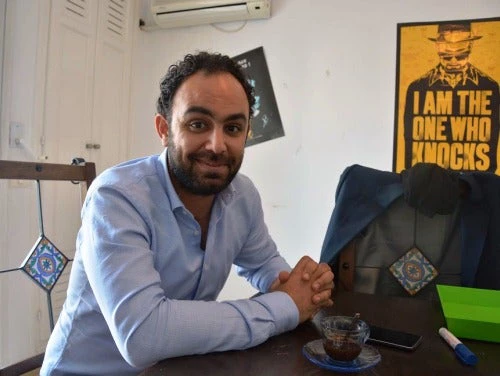
“The scary number of unemployed ‘highly-educated’ youth is an illustration of the mismatch between reality and expectations,” argues clean-tech entrepreneur Hassine Labaied. “It is also proof of the inability or unwillingness of the newly graduated to start a business on their own.”
According to a 2014 World Bank report, the Tunisian economic environment still lacks what is needed to attract more investment. Extensive barriers deter start-ups from launching, while according to the report, market restrictions, outdated business regulations and a poorly functioning financial system all pose significant obstacles. In short, protectionism and monopolies continue to hamper productivity and innovation.
Yet, despite the hurdles, there has been progress argues Labaied. “The business environment has improved since the revolution,” he says. “The de-facto monopoly of the Ben Ali clan over the economic arena has been alleviated. It is now easier to start your business.”
In 2014, during a US trip, the then interim Tunisian Prime Minister, Mehdi Jomaa, described Tunisia as a “hub for investment”. But can Tunisia really become an investment hub?
According to Labaied, yes. “Tunisia has most of the ingredients,” he says, adding, “we are shaping a new business framework and re-thinking our development model.” He estimates it will take 3–5 years, “but we will make it happen.”

Houssem Aoudi, founder of TEDxCarthage and co-founder of the Tunisian social business co-working space, Cogite, agrees. “Tunisia has everything to succeed,” he tells me when we meet at one of the co-working spaces in Lac, a suburb of Tunis overlooking the waters of the Mediterranean. He says the entrepreneurship community is growing quickly—one of the reasons behind the success of Cogite. “We wanted to create an oasis to host this community.”
Networking is key, he argues, the pillar behind the concept of Cogite: “you don’t just pay for the desk and the facilities,” he says, but also gain access to a large network of people from diverse backgrounds—everyone from young students to experienced entrepreneurs.

Yosr Tammar, co-funder of NorAppWeb
One of Cogite’s entrepreneurs is 29-year old Yosr Tammar, co-funder of NorAppWeb, a one-year-old tech company that is making apps.
What’s the biggest obstacle facing Tunisian entrepreneurs today, I ask her. “The bureaucracy,” she says, “and financing.” Friends and family have supported her but, at first, her mother was hesitant. “That’s a hobby,” she told her, “get a real job.” But after a couple of months she was persuaded, even proud.
Yosr’s co-founder is Norwegian and many of their clients are based in Norway, which is a huge advantage, Yosr argues: “It is not easy if you are limited to the Tunisian market.”
With ten years of entrepreneurship experience, Karim Jouini, CEO of tech start-up, PepinoTech, agrees. “You can’t grow in Tunisia,” he says, and highlighted how complicated it is accessing foreign currency, which locks you into the Tunisian market. In addition, it is hard to get access to venture capital. “It is hard to raise money,” Karim explains, and points to the complexity of getting your company assessed and valued, “it is close to impossible in the tech sector.” He also highlighted difficulties in finding skilled, motivated people because of the country’s high emigration rate.
Partnerships between local entrepreneurs and international funders are one solution, argues Labaied. This is what he did when he co-founded the clean-tech company, Saphon Energy . A platform matching local entrepreneurs with foreign investors is what was needed: “It is essential and feasible.” The platform should begin at a micro level and replicate at a larger scale. “I saw it happen elsewhere; the Israeli, Taiwanese and Indian experiences are good case studies.”
Labaied believes that many Tunisians abroad would love to set up businesses in their home country and, at the same time, “many ‘local’ clever ideas are in gestational stage and lack the initial boost and the first couple of thousand dollars to start materializing.”

According to Midani, there just isn’t the time to wait for the government’s backing; things need to move fast if Tunisia is to be able to measure up against other entrepreneurial hubs around the world. But the 31-year-old IT-entrepreneur is optimistic. “If you compare the ecosystem now with just five years ago, it is just unbelievable,” he sayes.
“Had you told me then that there would be incubators, accelerators and investors that really are in the entrepreneurship sector I would have said, ‘No, no way’.” Yet, encouragement and information are vital in order to get more Tunisians to dare starting their own business. The mentality is beginning to change, he said. “And it is moving fast.”


Join the Conversation